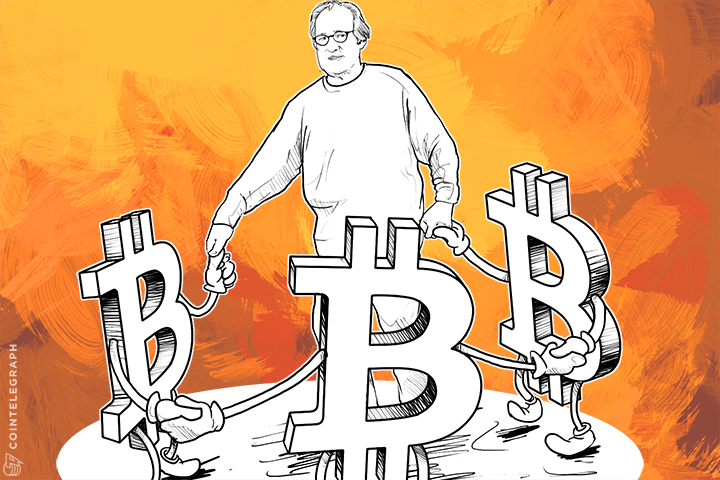Bitcoin is supposed to change how money works, but it may change social systems too. Or so claims ID3 Executive Director and MIT research scientist John H. Clippinger in the latest episode of Epicenter Bitcoin.
Clippinger has studied social systems, including and how to build trust frameworks for protecting and sharing personal information, and co-edited the book of essays From Bitcoin to Burning Man to Beyond. In his eyes, Bitcoin is a technology that could strike the root of our institutions and allow the flexibility for much-needed change to outdated, hierarchical social structures.
When asked how to design systems that self-correct and learn, Clippinger responded that it’s something researchers have been working on since the 70’s and 80’s, but the computational power wasn’t there.
But technology has improved since then. And Clippinger finds Bitcoin, and its third-party-free glory, interesting. He thinks that we're long-due for institutional change:
“It’s the idea that you could have a highly decentralized, open source, incentives mechanism that could actually launch change and challenge a lot of the current institutional structures—which I believe are failing. They're artifacts of another era. They're artifacts of the Enlightenment when we had three million people, not 300 million people.”
“We really have to think fundamentally about institutional design and governance itself,” he continued. “The idea that you can have a ledger and that you can sign for things without having a third party and you can run scripts and run scripts over that—and prove certain premises, is very important.”
The question of Bitcoin’s political neutrality
Clippinger also took on the subject of Bitcoin neutrality, a timeless cryptocurrency debate. Bitcoin is not inherently political, or to be more precise, libertarian, according to some in the community, because anyone can use it. Others, including Bitcoin developer Amir Taaki, argue that it’s censorlessness says otherwise, and that the blockchain can be ultimately be used for decentralized law.
Clippinger said of technology in general:
“Technology reflects human intention and human understanding. It also reflects the relative power equations of different people with access to resources.”
And of cryptocurrencies, he claims that different political philosophies can underpin them. Clippinger opines that Bitcoin is of a libertarian bent—“of the Chicago School,”— but thinks that cryptocurrencies can adopt other political philosophies. “Cooperative currencies,” for instance, reward information sharing. This is the subject of his recent article, called A New Kind of Social Ordering: Self-Sovereignty, Autonomous Trust, and P2P Parity.
Solving 'who guards the guards'
Clippinger says that Bitcoin offers a path to more effective governance.
“Just imagine if you’re able to have governance as a technology,” he said. “There are fundamental problems that have been around forever, like who guards the guards, which I really believe can be solved through zero-knowledge proof and other kinds of technologies.”
He noted that it might not solve all problems, but thinks it could solve a significant portion of governance issues we’ve faced for a long time. This is because rather than trusting a third party with your funds, you’re trusting that the code will execute the right way, as Clippinger notes in Chapter 2 of From Bitcoin to Burning Man to Beyond.
Clippinger:
“We're at a threshold of being able to solve some very intractable problems about how people run and govern themselves.”
About Epicenter Bitcoin
Epicenter Bitcoin is a podcast about the technologies, projects & startups driving decentralization and the global cryptocurrency revolution. Every week hosts Brian Fabian Crain and Sebastien Couture talk to some of the most influential people in the cryptocurrency space about their projects and get their perspectives on recent events. Their guests, who range from entrepreneurs to academics, to industry experts, join the conversation from different locations around the globe, which gives EB a truly international scope.
You can watch live Google Hangouts every week on YouTube and listen to the audio version on SoundCloud and iTunes.


